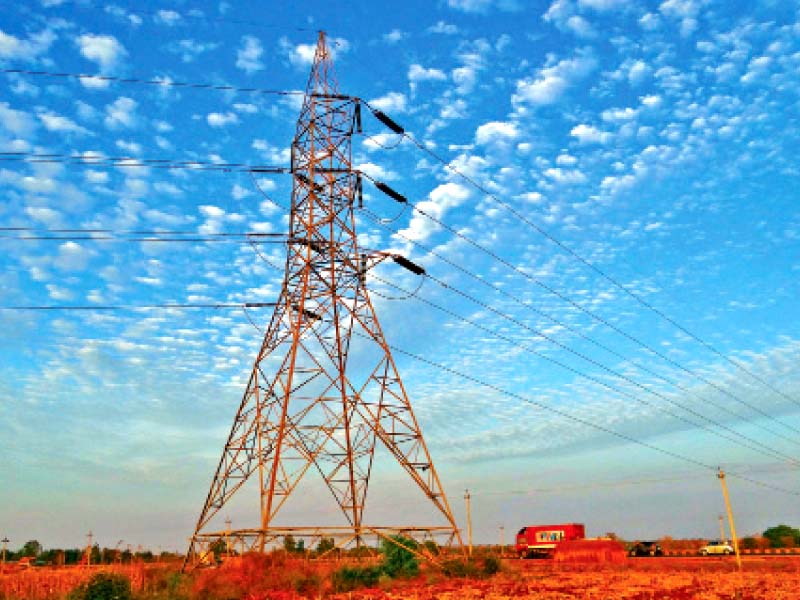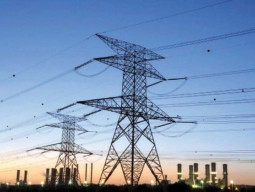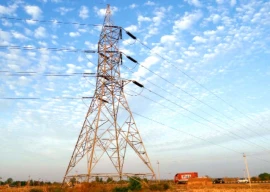
A close aide of the prime minister has stepped forward in the K-Electric deal that may lead to another controversy.
Different quarters say that intervention by the premier’s close aide, who had previously worked on different positions in K-Electric, may derail the progress made so far in resolving the payables and receivables dispute among Sui Southern Gas Company (SSGC), National Transmission and Despatch Company (NTDC), Ministry of Finance and K-Electric.
The issue, which potentially erodes financial viability of both public and private sector entities and which can be traced back to almost a decade, recently moved towards resolution on Prime Minister Imran Khan’s intervention.
Yet, just when the arbitration process began to gain steam, Special Assistant to Prime Minister (SAPM) on Energy Tabish Gauhar wrote a letter to the Privatisation Commission, highlighting objections to the under-consideration arbitration terms of reference (TORs).
Gauhar, who was the former chairman and CEO of the power utility, earlier claimed that he had stayed away from the arbitration process on account of his prior affiliation with K-Electric, which could create conflict of interest. The SAPM had also recently denounced from his earlier position on commercially driven load-shedding policy that was pioneered during his tenure at K-Electric.
Beyond the obvious conflict of interest, the timing of Gauhar’s intervention may also indicate a calculated intent to dent the progress made by the Ministry of Finance, Ministry of Energy and Privatisation Commission on dealing with the growing circular debt and proposed sale of K-Electric’s majority stake to Shanghai Electric Power (SEP).
Gauhar’s letter comes close on the heels of a two-day visit of Saudi business tycoon Sheikh Abdulaziz Hamad Aljomaih, who is part of the K-Electric consortium and holds a majority stake in the utility.
Aljomaih held meetings with PM Khan as well as President Arif Alvi, Finance Minister Abdul Hafeez Shaikh, Privatisation Minister Mohammad Mian Soomro and Energy Minister Omar Ayub Khan to seek resolution of the issues impeding the sale of K-Electric to SEP.
In a televised interview, Aljomaih appreciated the government of Pakistan’s assurances to expedite approvals and resolve issues that were compromising K-Electric’s financial sustainability and affecting Karachi’s growth prospects including the payment of nearly Rs280 billion worth of outstanding dues to K-Electric and SEP’s acquisition of K-Electric’s 66% shares.
The visit appeared to galvanise the previously sluggish progress with well-informed sources revealing, “There are meetings being held almost every day to ensure consensus of all parties, especially in light of the PM’s personal oversight.”
However, Gauhar, in the letter, stated that in reference to the “Principles of Equity and Fairness”, if the laws of Pakistan were inherently based on such principles, there ought to be no legal need to specifically mention these twice in the TORs and if they were not, what’s the implication of any conflict between these “principles” and specific applicable clauses of underlying contract(s) and law?
In reference to the “cost of funds”, it was stated that from the CPPA’s standpoint, the only applicable cost of funds is the late payment interest formula spelled out in its power purchase agreement with K-Electric, otherwise, we would be debating the federal government’s actual borrowing cost of PIBs, Sukuk, etc that are often used to pay CPPA for onward payments to various IPPs (including the late payment interest).
“If we open this Pandora’s Box, we may as well look at the IPPs’ actual cost of funds vis-a-vis the late payment interest they contractually charge to and receive from CPPA under their respective power purchase agreements (PPAs).
On “adjustment”, he highlighted that the amount determined by the arbitrator as owed by K-Electric to the CPPA must only be set off against the tariff differential subsidy (TDS) amount (owed by the Ministry of Finance to K-Electric) as per express provision of the PPA. “It cannot be against the KWSB payables that may very well be the government of Sindh’s liability as per recent Supreme Court’s observations”.
On the “compensation amount, if any, payable by the finance ministry to K-Electric for delayed payment of tariff differential subsidies”, the arbitrator needs to also account for the various actions and policy choices of K-Electric over the last several years, for example, appealing, contesting, including in courts of law, against National Electric Power Regulatory Authority’s (Nepra) multi-year tariff determination that led to, among other things, delay in the crystallisation of its TDS claims with the finance ministry, leading to delayed or non-payment of K-Electric’s dues to the CPPA and the resultant build-up of circular debt.
The SAPM on energy’s response was awaited till the filing of this story.
Published in The Express Tribune, March 26th, 2021.
Like Business on Facebook, follow @TribuneBiz on Twitter to stay informed and join in the conversation.







1719053250-0/BeFunky-collage-(5)1719053250-0-270x192.webp)













COMMENTS
Comments are moderated and generally will be posted if they are on-topic and not abusive.
For more information, please see our Comments FAQ